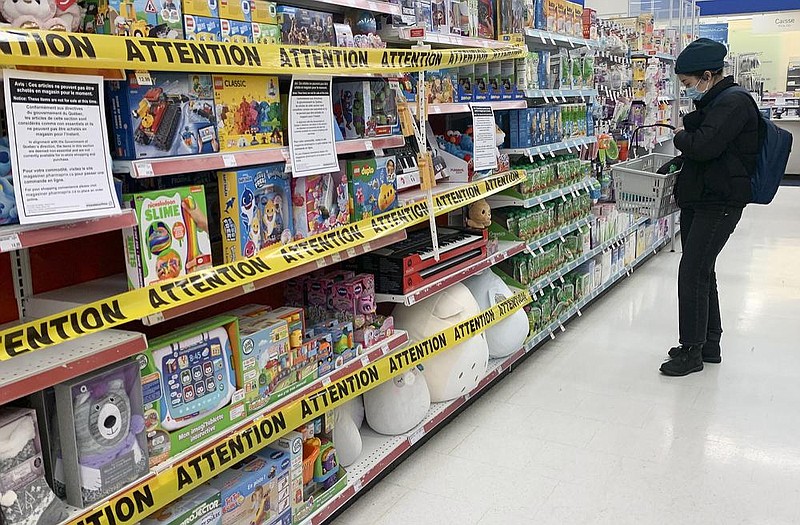MONTREAL -- Quebec's premier announced Wednesday that he is imposing a provincewide 8 p.m. curfew beginning Saturday as a way to curb surging coronavirus infections and hospitalizations.
The province will become the first in Canada to impose a curfew for addressing the pandemic. More than 8.4 million people live in the French-speaking province.
Premier Francois Legault said that despite the fact that schools, stores and many other businesses have been closed since December, infections and related hospitalizations continue to rise. Too many older people are ending up in hospital after becoming infected in private homes, he said.
"We are obliged to provide a type of shock treatment so that people reduce their visits," he told reporters.
Beginning Saturday and until at least Feb. 8, Quebec residents will be under a curfew from 8 p.m. to 5 a.m., Legault said. He said anyone caught breaking the rules is liable to a fine between $868 and $4,732. The government is considering creating a document for people who have to be out after the curfew that could be shown to police.
[CORONAVIRUS: Click here for our complete coverage » arkansasonline.com/coronavirus]
"When we say we are giving an electroshock it's really for four weeks, a period that should make a difference," Legault said.
Legault said officials have been struggling to understand why the province's cases have continued to spike despite restrictions, including the closure of schools. He said authorities concluded that the virus was being spread through gatherings in residences, and the curfew is meant to prevent that.
The premier said all nonessential businesses that he ordered closed in December will remain closed until at least Feb. 8, when the curfew is scheduled to be lifted.
Legault, however, said primary schools will reopen as scheduled, on Jan. 11, and high school students will return to in-person learning the week after, on Monday. "Our children have to be able to continue to learn," he said.
Speaking before Legault's news conference, Dr. Donald Sheppard, chairman of the microbiology and immunology department at McGill University, said the government needed to explain the logic behind a curfew because the majority of outbreaks documented by public health agencies have been in workplaces and schools.
Quebec reported 47 more deaths related to covid-19, with 2,641 new infections and a rise in both hospitalizations and people in intensive care. It has recorded 217,999 cases and 8,488 deaths since the beginning of the pandemic.
Much of Quebec, including the province's largest cities, has been under partial lockdown since October, when bars, restaurant dining rooms, gyms and entertainment venues were closed. In December, Legault closed all "nonessential" retail stores and extended the winter break for elementary and high school students.
Canada has recorded close to 625,000 coronavirus cases, with about 16,300 of them fatal. The bulk of cases have been in the country's two most populous provinces -- Ontario and Quebec, where conditions have been deteriorating rapidly in recent weeks.
Compounding the picture is the still small but growing number of cases related to a coronavirus variant first identified in the United Kingdom that is believed to be even more contagious than the original.
Nevertheless, Transport Minister Marc Garneau lifted the ban on inbound flights from the U.K. A negative coronavirus test will be required to board planes to Canada starting this week.
Ontario, which is Canada's most populous province, reported 37 more covid-19 deaths along with 3,266 new confirmed coronavirus cases.

